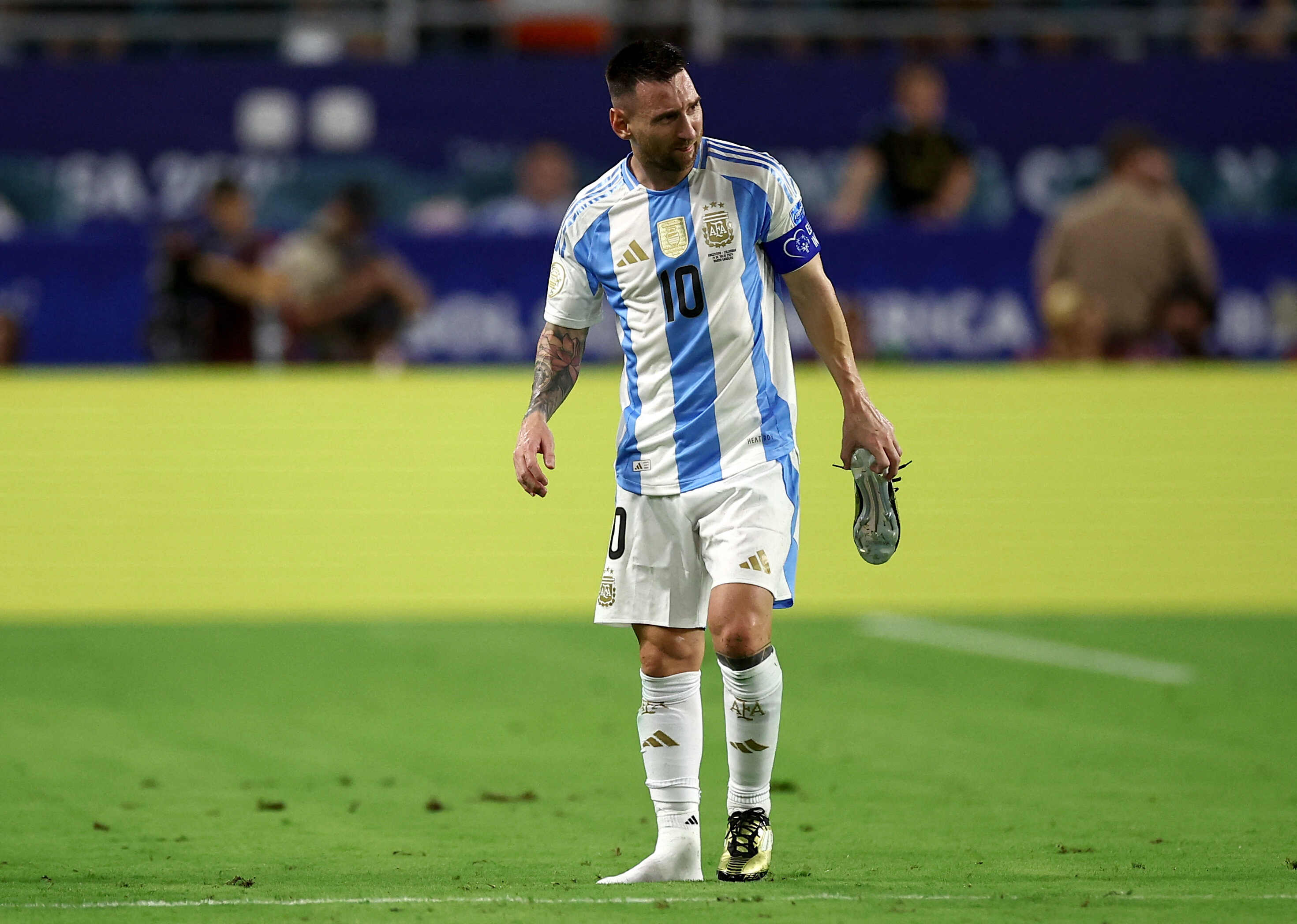
How do teams qualify for the World Cup? The journey to the World Cup is a thrilling adventure filled with intense matches, unexpected twists, and dreams coming true. For the 2024 World Cup qualifiers, 211 teams from six continents are battling for a coveted spot in the tournament. Each continent has its own set of qualifying rounds, ensuring regional representation. The host nation gets an automatic berth, while others must earn their place through a series of competitive matches. From red cards to record-breaking goals, the qualifiers are a spectacle in their own right, showcasing the global passion for football.
Key Takeaways:
- The World Cup qualifiers involve 211 teams competing for 48 spots in the tournament. Teams from different continents battle it out in regional groups, making the journey to the World Cup both challenging and exciting.
- The 2026 World Cup will feature 48 teams and 104 matches, with the host country receiving automatic qualification. The qualifiers are not just about winning matches but also about creating memorable moments and records.
The Qualifying Process
The journey to the World Cup is a thrilling adventure for football fans worldwide. It all starts with the qualifiers, where teams battle it out for a coveted spot in the tournament.
- Qualifying Process: The FIFA World Cup qualification involves competitive matches that national teams play to earn a berth at the final tournament.
- Number of Teams: A total of 211 teams are eligible to participate in the qualification process.
- Confederations: The qualifiers are organized by six FIFA continental zones: AFC (Asia), CAF (Africa), CONCACAF (North and Central America and the Caribbean), CONMEBOL (South America), OFC (Oceania), and UEFA (Europe).
- Automatic Qualification: The host country receives an automatic berth. Historically, the immediate past tournament winner also received automatic qualification.
- Qualifying Rounds: Finalists are determined through standalone qualifying rounds, with no regard to previous achievements.
Team Participation and Group Stages
Each team's journey through the qualifiers is unique, filled with challenges and triumphs. Let's dive into how teams participate and the structure of the group stages.
- Team Participation: Each team's participation is tracked, showing whether they qualified, withdrew, did not qualify, or were disqualified.
- Qualifying Groups: Teams are divided into confederations based on geographic regions, ensuring regional competition.
- Number of Matches: The 2026 World Cup will feature 48 national teams and 104 matches, marking the first time the tournament will have 48 teams.
- Qualifying Timeline: The 2026 World Cup qualifying matches began on September 7, 2023, and will continue until March 2026.
- Teams Involved: A total of 211 teams began the qualification process for the 2026 World Cup, with 48 teams making it to the final tournament.
Hosts and Automatic Qualification
The host country plays a significant role in the World Cup, not just by hosting but also by automatically qualifying for the tournament.
- Hosts and Automatic Qualification: The hosts of the 2026 World Cup will receive automatic qualification. The specific host country will be determined later.
- Qualifying Process for Other Tournaments: The ICC Men's T20 World Cup has a similar qualifying process, with hosts and top teams from the previous tournament qualifying automatically.
- ICC Men's T20 World Cup Qualification: The remaining places are filled via regional qualifiers, ensuring teams from different regions have an opportunity to qualify.
First-Time Qualifiers and Group Stage Format
New teams often bring fresh excitement to the tournament. Let's look at some first-time qualifiers and the format of the group stages.
- Teams Qualified for ICC Men's T20 World Cup: Ireland, Scotland, Papua New Guinea, Canada, Nepal, Oman, Namibia, and Uganda qualified through regional qualifiers.
- First-Time Qualifiers: Canada and Uganda qualified for the men's T20 World Cup for the first time, while the United States participated for the first time as co-host.
- Group Stage Format: The ICC announced the groups and fixtures on January 5, 2024. The group stage matches will be played from June 1 to 17, 2024, with 20 teams divided into four groups of five.
Memorable Moments and Records
The World Cup qualifiers have produced some unforgettable moments and impressive records. Here are a few highlights.
- Opening Match: The opening match will feature co-hosts United States facing Canada in the first-ever T20I match at Grand Prairie Stadium on June 1.
- World Cup History: The first World Cup was played in 1930 in Uruguay, with Uruguay both hosting and winning the tournament.
- Oldest Goalscorer: Roger Milla of Cameroon became the oldest goalscorer in World Cup history at age 42 in 1994.
- Missing Trophy: The World Cup trophy went missing for seven days in 1966 when it was stolen just before the tournament.
- Winter World Cup: The 2022 World Cup was the first winter World Cup in the northern hemisphere, held in November and December to avoid Qatar's intense summer heat.
Statistics and Records
The qualifiers are not just about the matches but also the statistics and records that come with them. Here are some intriguing stats.
- Highest Scoring Game: The highest-scoring game in World Cup history was in 1954 when Austria defeated Switzerland 7-5.
- Least Matches Played: Indonesia has played the least number of matches in World Cup history—just one in 1938.
- Most Losses: Mexico has the most World Cup losses (28), though they also have 17 wins and 15 draws.
- Most Goals by a Player: Oleg Salenko of Russia holds the record for most goals scored by one player in a World Cup match, with five goals.
- Continuous Participation: Brazil is the only country to have appeared in all 22 World Cups.
Fun Facts and Trivia
The World Cup qualifiers are filled with interesting trivia and fun facts that add to the excitement of the tournament.
- Baby Boom: The World Cup-winning country often sees a baby boom nine months after the tournament.
- Planned City: Lusail, the city that hosted the 2022 World Cup Final, is a multi-billion dollar planned city that didn't exist before 2006.
- Smallest Host Country: Qatar is the smallest country to host a World Cup tournament.
- Highest Scoring Tournament: The 2022 World Cup was the highest-scoring World Cup to date, with 172 goals scored.
Qualifying Statistics and Red Cards
The qualifiers are not just about goals and wins but also about the discipline and statistics that come with the matches.
- Qualifying Statistics: From 734 matches in the 2014 World Cup qualifiers, there were 2,084 goals scored, averaging 2.8 goals per game.
- Highest Proportion of Goals: Europe accounted for 27.5 percent of all qualifying goals.
- Capped Players: A total of 5,549 players have taken part in the qualifiers, representing their countries.
- Red Cards: Over all zones, 86 red cards have been issued so far. Europe has seen the most, with 22 red cards.
- Repeat Offenders: Savo Pavicevic of Montenegro and Aggrey Morris of Tanzania are the only players to have seen red twice during the qualifying campaign.
Teams Not Participating and Early Eliminations
Not all teams participate in the qualifiers, and some are eliminated early in the process. Here are some details.
- Teams Not Participating: Bhutan, Brunei, Guam, and Mauritania opted not to take part in the qualifiers. South Sudan joined as a new FIFA member after the qualifiers had already begun.
- Early Eliminations: Laos, Timor-Leste, and Myanmar were some of the earliest teams eliminated from the qualifying campaign.
- Teams Already Qualified: Ten teams are already assured of a place at the 2014 World Cup, including Brazil, Japan, Australia, Iran, South Korea, the United States, Costa Rica, Netherlands, Italy, and Argentina.
Continuous Participation and Potential Newcomers
Some teams have a long history of participation, while others are on the brink of making their first appearance.
- First-Time Qualifiers in 2014: Iran and Costa Rica will be competing at their first World Cup finals since 2006.
- Continuous Participation: Brazil is playing in their 20th straight World Cup finals, while Italy will make their 18th appearance overall.
- Potential Newcomers: Iceland, Bosnia-Herzegovina, Venezuela, and Jordan are all in positions to potentially make their first World Cup appearances.
Teams on the Brink and Qualifying Groups in 2026
Several teams are on the brink of qualification, and the structure of the qualifying groups for 2026 is already taking shape.
- Teams on the Brink: Belgium, Germany, Switzerland, and Russia can all secure qualification to the World Cup finals in their next fixtures.
- Qualifying Groups in 2026: The qualifying groups for the 2026 World Cup will be divided based on confederations, ensuring regional competition.
- Timeline for 2026 Qualifiers: The 2026 World Cup qualifying matches began on September 7, 2023, and will continue until March 2026.
- Number of Teams in 2026: A total of 211 teams began the qualification process for the 2026 World Cup, with 48 teams making it to the final tournament.
Hosts for 2026 and ICC Men's T20 World Cup
The hosts for the 2026 World Cup will play a crucial role, and the ICC Men's T20 World Cup has its own unique qualifying pathways.
- Hosts for 2026: The hosts for the 2026 World Cup have not been announced yet. The host country will be determined later.
- ICC Men's T20 World Cup Qualification Pathways: The qualification pathways include automatic qualification for the hosts and top teams from the previous tournament.
- ICC Men's T20 World Cup Group Stage Format: The group stage matches will be played from June 1 to 17, 2024, with 20 teams divided into four groups of five.
- Opening Matches for ICC Men's T20 World Cup: The opening match will feature co-hosts United States facing Canada in the first-ever T20I match at Grand Prairie Stadium on June 1.
- Conclusion: The World Cup qualifiers are a complex and exciting process that involves numerous teams from different continents. The journey to the World Cup is long and challenging, but it is also filled with opportunities for teams to showcase their skills and compete at the highest level.
The Road to Glory
World Cup qualifiers for 2024 are a thrilling journey filled with intense competition and remarkable stories. With 211 teams vying for a spot, the process is nothing short of epic. Each confederation, from AFC to UEFA, brings its own flavor to the mix, making the qualifiers a global spectacle. The introduction of 48 teams in the 2026 World Cup adds another layer of excitement. Automatic qualifications, red cards, and first-time qualifiers like Canada and Uganda keep fans on the edge of their seats. The qualifiers aren't just about football; they're about dreams, perseverance, and the unyielding spirit of nations. As teams battle it out on the pitch, fans worldwide watch with bated breath, hoping their team makes it to the grand stage. The road to the World Cup is long and challenging, but it's also where legends are born.
Frequently Asked Questions
Was this page helpful?
Our commitment to delivering trustworthy and engaging content is at the heart of what we do. Each fact on our site is contributed by real users like you, bringing a wealth of diverse insights and information. To ensure the highest standards of accuracy and reliability, our dedicated editors meticulously review each submission. This process guarantees that the facts we share are not only fascinating but also credible. Trust in our commitment to quality and authenticity as you explore and learn with us.


